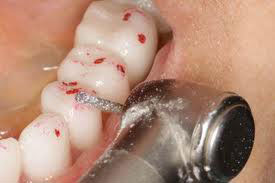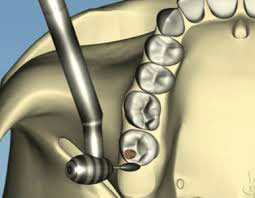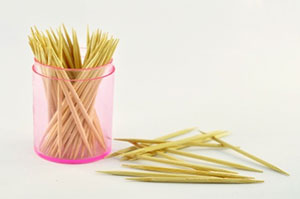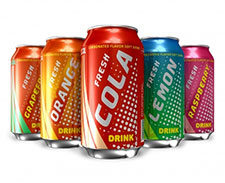What Are Occlusal Adjustments?
February 6th, 2014
 If you are experiencing, headaches, ear problems, clicking or grating jaw, mouth discomfort, and looseness of teeth, or any combination of these symptoms, you may be having an issue with your TMJ. If that’s the case, your dentist might recommend occlusal adjustments. What are occlusal adjustments? It is a method to reshape the surface of your teeth to create an even and harmonious relationship between the top and bottom teeth. To understand why this needs to happen though, we must dig a little deeper.
If you are experiencing, headaches, ear problems, clicking or grating jaw, mouth discomfort, and looseness of teeth, or any combination of these symptoms, you may be having an issue with your TMJ. If that’s the case, your dentist might recommend occlusal adjustments. What are occlusal adjustments? It is a method to reshape the surface of your teeth to create an even and harmonious relationship between the top and bottom teeth. To understand why this needs to happen though, we must dig a little deeper.
As you may have read in our earlier blog post, we described the condition known as TMD, or Temporomandibular Joint Disorder. This is a condition in which the TMJ, or Temporomandibular Joint, is slightly displaced. This is a very delicate and complicated joint that helps move your jaw. When you stick your chin forward, or side-to-side, the mandible joint slides out of its socket. When your chin and jaw are centered and pulled back, the mandible sits in the sockets of the joint. the TMJ is designed to rest in the sockets of the joint rather than displaced forward or to the side. However, if your teeth are not aligned to the proper positions, then closing your mouth can cause a shift in the joint, which adds unnecessary stress to the mouth and jaw.
If your TMJ is misplaced, then the symptoms we mentioned earlier, plus more can begin to occur. You can wake up in the morning with headaches, pain behind the eyes, swollen throat, sore neck and more. Most telling, when you wake up, you might not be able to move your mouth or jaw and have trouble opening up your mouth to eat. If this sounds like a situation you have experienced before, you should consult a dentist immediately.
So what will happen at the dentist? If you do happen to have TMD, your dentist will want to make occlusal adjustments to better align your teeth so your mandible can rest correctly in its socket using Tek scan technology. This includes finding the teeth’s positions in the mouth and the proper areas to make the adjustment. Much like trimming your hair or fingernails, only very small amounts of the teeth are shaved down to create an evenly centric relation. With that, you should experience less teeth grinding and your jaw should sit more centered relieving any kind of discomfort.
 While shaving down teeth can seem like an easy option, it’s an irreversible procedure, and if the adjustments aren’t made properly, you could find yourself in a troubling situation. At Water Tower Dental, we offer non-damaging therapy options that can help fix the TMD condition. Using a Transcutaneous Electrical Neural Stimulation, or TENS, unit, we are able to asses any neuromuscular problems. While many doctors focus on the misplacement of the jaw, scientific developments have revealed that some problems associated with teeth, mouth, and jaws are actually caused by improper functions of the muscles and nerves. Using the TENS unit, we are able to find ideal positioning of the jaw.
While shaving down teeth can seem like an easy option, it’s an irreversible procedure, and if the adjustments aren’t made properly, you could find yourself in a troubling situation. At Water Tower Dental, we offer non-damaging therapy options that can help fix the TMD condition. Using a Transcutaneous Electrical Neural Stimulation, or TENS, unit, we are able to asses any neuromuscular problems. While many doctors focus on the misplacement of the jaw, scientific developments have revealed that some problems associated with teeth, mouth, and jaws are actually caused by improper functions of the muscles and nerves. Using the TENS unit, we are able to find ideal positioning of the jaw.
With the information gathered, we can begin properly adjusting the jaw to relieve discomfort. We recommend patients to wear an orthotic for three months, afterward, we can determine if the orthotic has alleviated the symptoms or if further adjustments are necessary.
Much of TMD is trial and error; all patients’ jaws and muscles react different to orthotics and natural adjustments. However, we do believe using non-damaging methods first is the best option. While occlusal adjustments may have worked in the past, there are too many cases in which damage has been done without proper results.
If you are having symptoms of TMD and would like to talk to Water Tower Dental on how you can fix the issue without irreversible procedures, contact us today.

 Toothpicks have been one of the most widely used tools for hygiene in the world. These simple pieces of carved wood help us free those annoying food particles stuck between our teeth after a rousing meal. But are toothpicks good for your teeth? Doesn’t the act of poking and prodding at your teeth and gums seem slightly wrong? If you have that inclination, it’s because you’re right. While toothpicks can be a helpful tool, overuse can be harmful and should call alarm to a bigger concern.
Toothpicks have been one of the most widely used tools for hygiene in the world. These simple pieces of carved wood help us free those annoying food particles stuck between our teeth after a rousing meal. But are toothpicks good for your teeth? Doesn’t the act of poking and prodding at your teeth and gums seem slightly wrong? If you have that inclination, it’s because you’re right. While toothpicks can be a helpful tool, overuse can be harmful and should call alarm to a bigger concern. We spend a considerable amount of time discussing the
We spend a considerable amount of time discussing the  Clenching and grinding your teeth is a harmful and unhealthy habit to form. Unfortunately most people don’t even know they do it. Most teeth grinders do so in their sleep so they have no idea it’s happening. The result of clenching and grinding can cause serious damage to your teeth along with other symptoms. We’d like to show you how to stop grinding your teeth.
Clenching and grinding your teeth is a harmful and unhealthy habit to form. Unfortunately most people don’t even know they do it. Most teeth grinders do so in their sleep so they have no idea it’s happening. The result of clenching and grinding can cause serious damage to your teeth along with other symptoms. We’d like to show you how to stop grinding your teeth.




 Website Powered by Sesame 24-7™
Website Powered by Sesame 24-7™